HomeFeaturesField Of Glory: Kingdoms
The Rally Point: Field of Glory: Kingdoms is an elaborate building game in a grand strategy jacketDemesne calm
Demesne calm
Image credit:Rock Paper Shotgun/Slitherine
Image credit:Rock Paper Shotgun/Slitherine
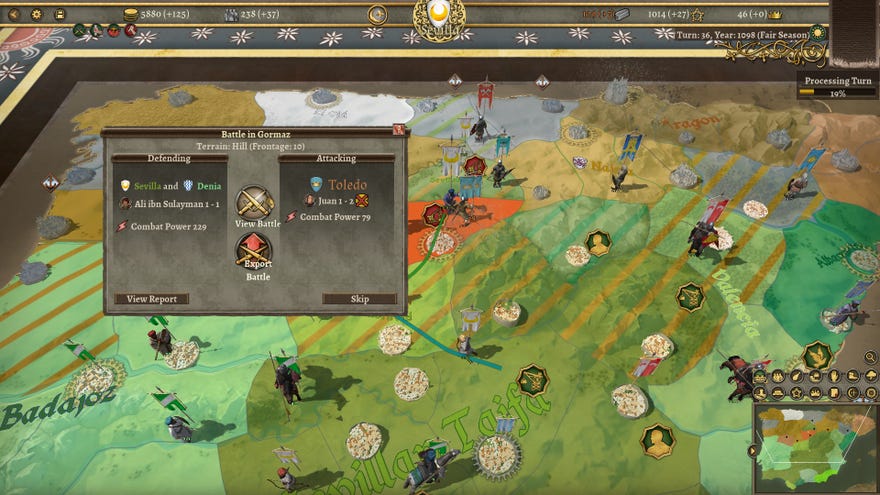
Four thousand words of notes. Hoboy.Field of Glory Colon Kingdomsis definitely thought-provoking.
It was also complaint-provoking in the fairly long period where I didn’t understand what it’s trying to do. Reaching that point, luckily for you, means we can cut out a lot of the “confused whingeing” subsection of those notes. Though it still has its shortcomings, I’ve come to appreciate that I was reading Kingdoms all wrong. Although it talks big about characters, politics, and religion, they’re not what it’s about. It’s aboutbuilding.
Field of Gloryis a series of turn-based wargames built on the same ruleset, focusing on short campaigns over multiple linked battles. 2019’s Empires spun off into a grand strategy about developing an ancient empire, and Kingdoms overhauls and brings that to the High Middle Ages. It’ll sound very familiar. You pick a throne, and control all the land it oversees. You raise armies to conquer new lands or murder your Abrahamic siblings for definitely not politically expedient reasons, and you try to maintain and develop your holdings, and gather resources both tangible and conceptual. Occasionally your king will die and/or there’ll be a coup or civil war, but you’ll continue as whoever sits on your original throne. If your new emperor is a tactless dipshit, well, them’s the breaks, you’ll have to adjust.
Image credit:Rock Paper Shotgun/Slitherine
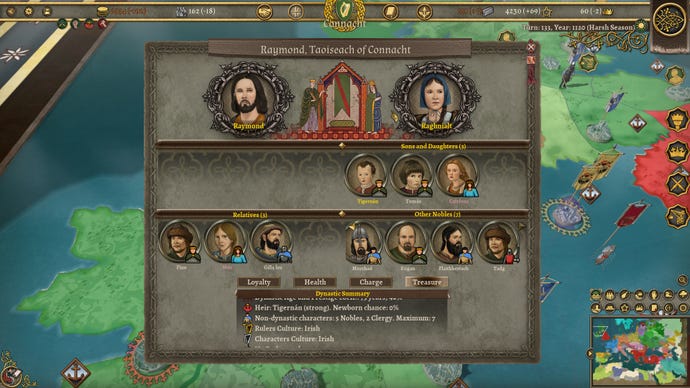
It’s still part wargame. Battles takes advantage of FoG’s large catalogue of stabmen, with your starting culture providing local flavours of javelad, axeboy, and so on, and introducing more as your society figures out which end of a horse the food goes in. Combat is detailed, but heavily condensed from the core rules, as each unit fights one turn against its opposite in linear order. Far from taking over as I’d anticipated, its option to export and play out field battles in FoG Medieval is more a bonus addition to the latter game. Army composition is important to learn, but the real point is how you sustain that army to begin with.
Conscripting levies costs manpower and equipment, and more again to maintain, making mercenaries a good option even early on because they provide their own. They cost more in cash, but that’ssimple: mo money, mo prodmens. A standing army is heavily dependent on your ruler, but tends to become more viable over time as your kingdom’s development lifts some restrictions. And because you’ll have actually built the infrastructure that provides more equipment and labour.
Image credit:Rock Paper Shotgun/Slitherine
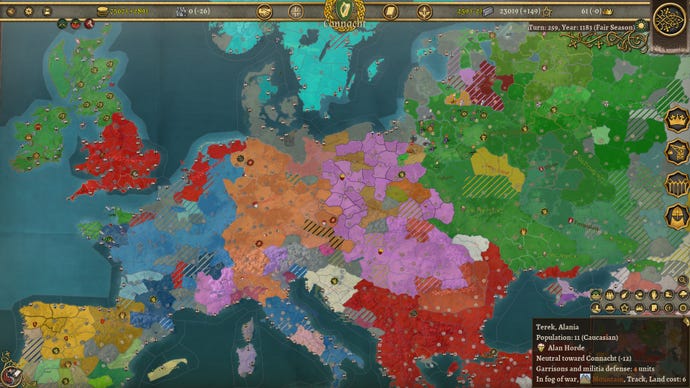
It emphasises that medieval development is slooow. But the most interesting result is that even if you really throw your Authority around, you don’t get stuck into the usual build orders, minmaxing, or rote uniformity. You have to roll with things. Not in the dramatic, story-generating way, but one that makes your lands more organic, and every decision more active. I hadn’t planned on it, but if I build this clothier, it’d make use of that weaver in Lothian, and export to the camp in Moray.
That’s the other construction concern: many also produce tangible goods. Without specific goods, many buildings operate at massive cost, if at all. It’s a whole extra management layer, and the most enjoyable trade system I’ve seen in a grand strategy game. It ties your lands together, encouraging organic networks - yes, a local production chain is good, but a distributed one might come sooner, plus trade within your borders generates money. It’s a machine, but an irregular, shifting one. This is the real heart of Kingdoms. Development isn’t pushing a number up; it takes careful management of each region, and the interdependencies between them.
Image credit:Rock Paper Shotgun/Slitherine
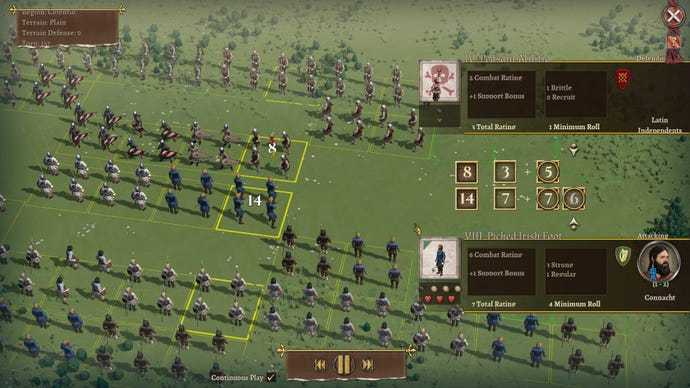
Authority also comes from winning battles, and taking lands you have a claim on (absurdly easy to acquire - merely insult someone and your ruler will often unilaterally declare several claims). But you can’t build the perpetual motion machine, and overreach almost inevitably leads to decline. Until you realise that a few buildings generate tiny amounts of Authority each turn, and others still a small chance of causing an Authority-bumping event. It’s risky, but possible to push past your limits for a time. You’re even encouraged to burn rather than stockpile Authority, since the higher it gets, the faster it passively drains. It’s a balancing act that took me dozens of hours to understand because I was still comparing, not contrasting it to its peers.
Image credit:Rock Paper Shotgun/Slitherine
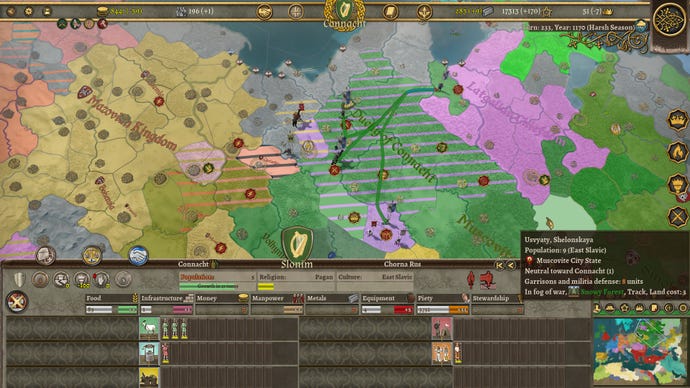
I suspect my opinion of Kingdoms will continue to waver for a long while, and that I’ll appreciate its approach all the more in a few years. It has too many problems to recommend without caveats, and its scale may mean such a small developer can only do so much to tune or follow it up. But in the meantime, it’s a valiant attempt, and might appeal to building lovers more than the warfare or feudalism sim fans it courts.